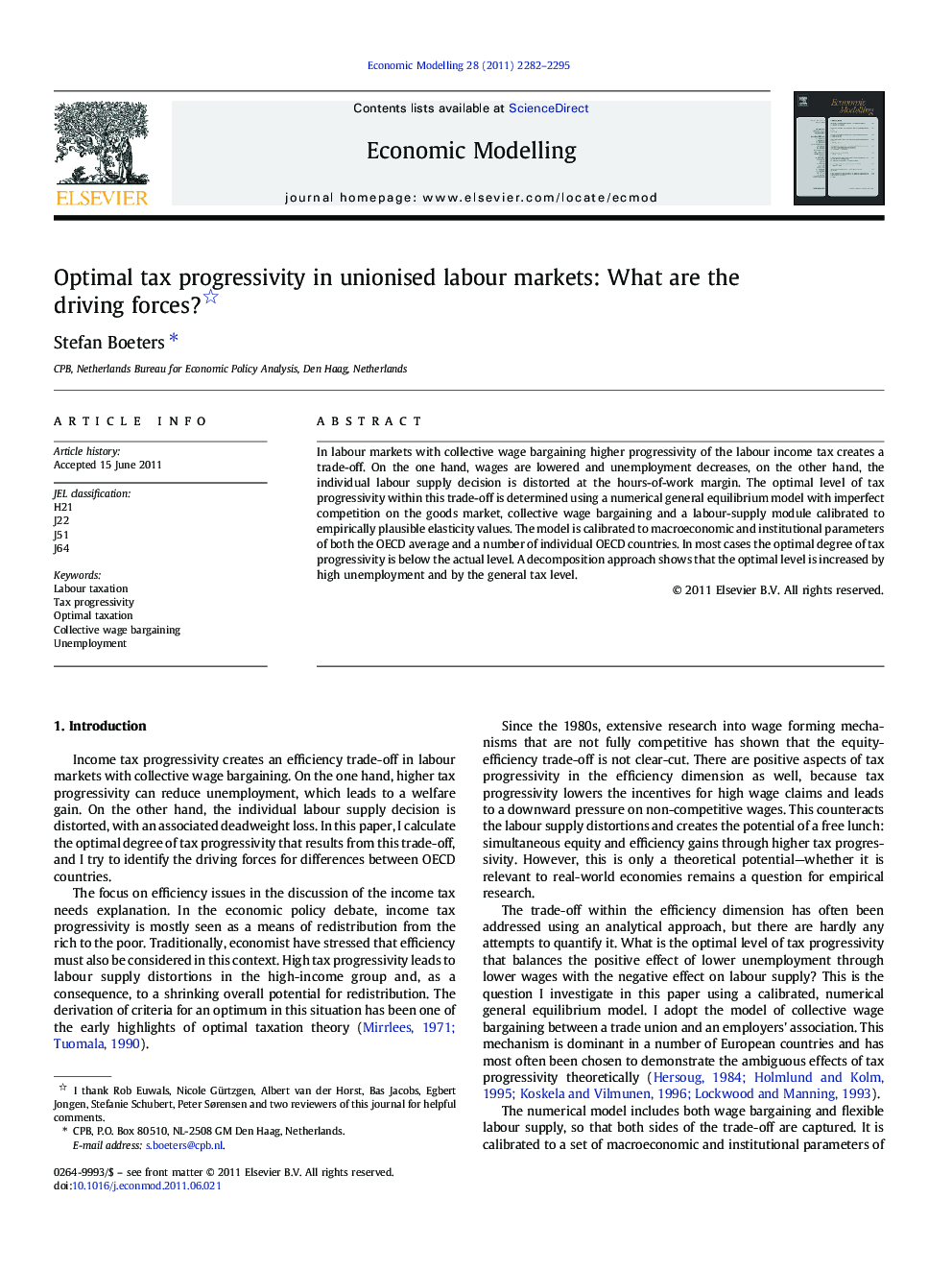| Article ID | Journal | Published Year | Pages | File Type |
|---|---|---|---|---|
| 5055213 | Economic Modelling | 2011 | 14 Pages |
In labour markets with collective wage bargaining higher progressivity of the labour income tax creates a trade-off. On the one hand, wages are lowered and unemployment decreases, on the other hand, the individual labour supply decision is distorted at the hours-of-work margin. The optimal level of tax progressivity within this trade-off is determined using a numerical general equilibrium model with imperfect competition on the goods market, collective wage bargaining and a labour-supply module calibrated to empirically plausible elasticity values. The model is calibrated to macroeconomic and institutional parameters of both the OECD average and a number of individual OECD countries. In most cases the optimal degree of tax progressivity is below the actual level. A decomposition approach shows that the optimal level is increased by high unemployment and by the general tax level.
⺠The paper contributes to the analysis of optimal tax progressivity. ⺠It investigates the trade-off between unemployment and labour supply distortions. ⺠Optimal tax progressivity is determined using a numerical general equilibrium model. ⺠In most cases the optimal degree of tax progressivity is below the actual level. ⺠Optimal tax progressivity is increased by unemployment and by the general tax level.
